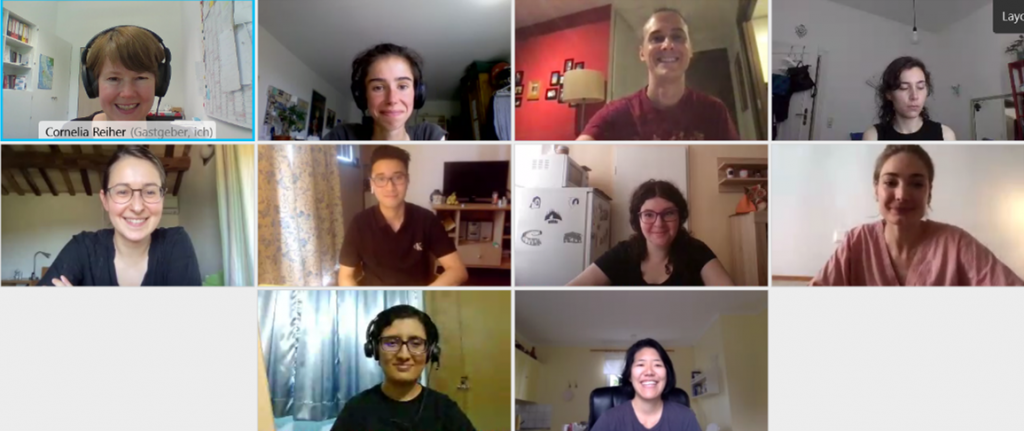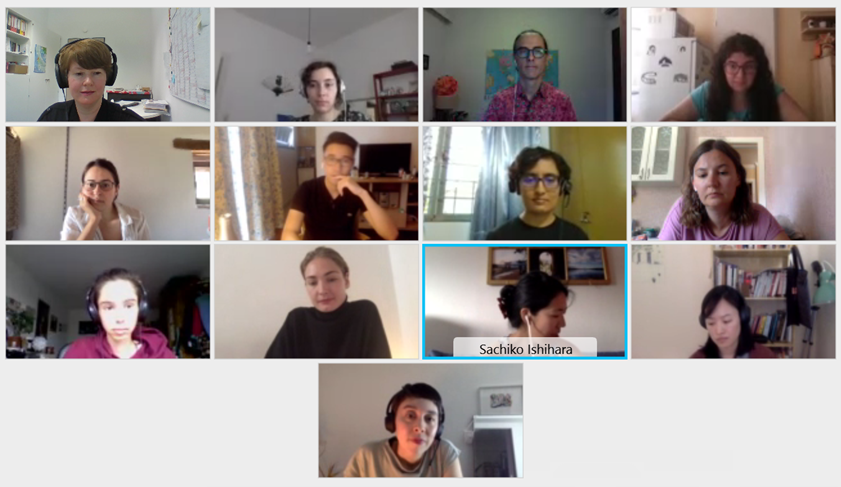by Cornelia Reiher
It’s been ten months since our project started under Covid-19 conditions and although the situation in Germany has improved a lot due to high vaccination rates and low numbers of infections (at least for now), Japan’s borders are still closed to foreigners.
After reading literature on urban-rural migration and rural revitalization for the project and writing literature reviews with the core research group for the first six months, in March 2021, we launched this blog and started a study group. In biweekly meetings, team members and guests presented their work. What had started out as a group of five people in October 2020 developed into a constantly growing international and interdisciplinary group of students and scholars from Europe and Asia.

Over the course of the summer term, we heard presentations about newcomers to small islands, sustainability and in-migration in a village in Kyōto prefecture, in-migrants’ engagement in local crafts, organic farmers and newcomers in Kansai, human-nature relations of newcomers in Miyako-jima, the Chiiki okoshi kyōryokutai program and the central government’s Comprehensive Strategy. We had inspiring discussions about local differences and our methodological approaches and shared readings with the other group members. Through my own online presentations in Paris, Zurich and Vienna during the summer term I reached out to researchers interested in rural revitalization and urban-rural migration and advertised our blog and study group in our academic community.

One of the highlights of our study group was Susanne Klien’s presentation in late June. We all had read her book Urban Migrants in Rural Japan: Between Agency and Anomie in a Post-Growth Society and were excited to meet the author. Susanne did not only present and discuss her book and answered our questions, but also talked about her follow-up research in rural Japan and how Covid-19 impacted her research. Susanne’s experiences with informal rules concerning Covid-19 in the countryside in Japan particularly helped us to rethink our own future fieldwork and to develop strategies to respond to local residents’ fears and expectations.

For our own fieldwork, we have arranged affiliations with universities in Japan, contacted all the municipalities we want to conduct field research in and hope that visa applications to Japan will be possible again, now that we are all fully vaccinated. And while getting ready for fieldwork we have been constantly thinking about a plan B and therefore conducted first online interviews, searched through myriads of blogs, videos, policy documents and social media accounts of municipalities and prefectural offices. We are grateful for the opportunities the digital world offers, nevertheless, more than anything we hope to engage in onsite fieldwork this year and to meet our research participants in person.
